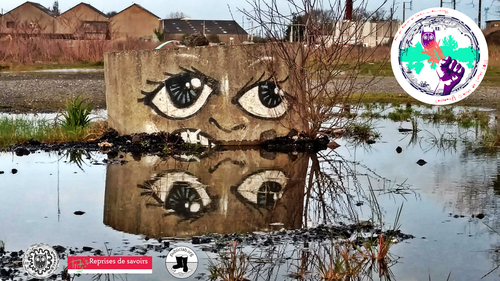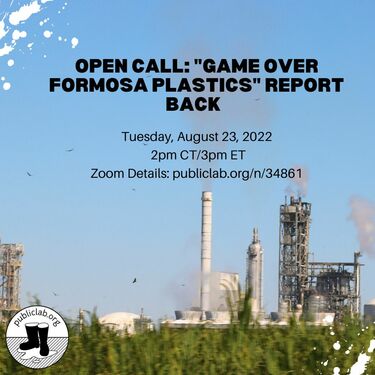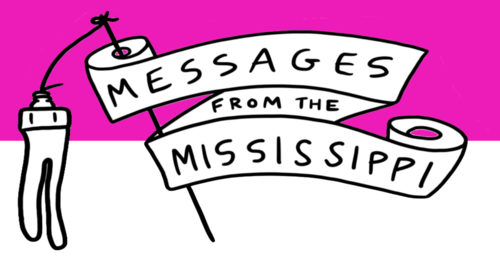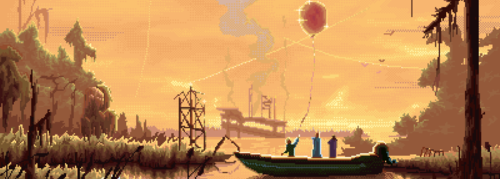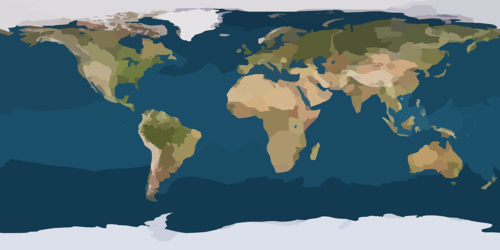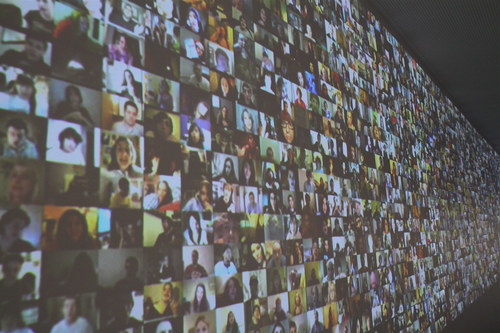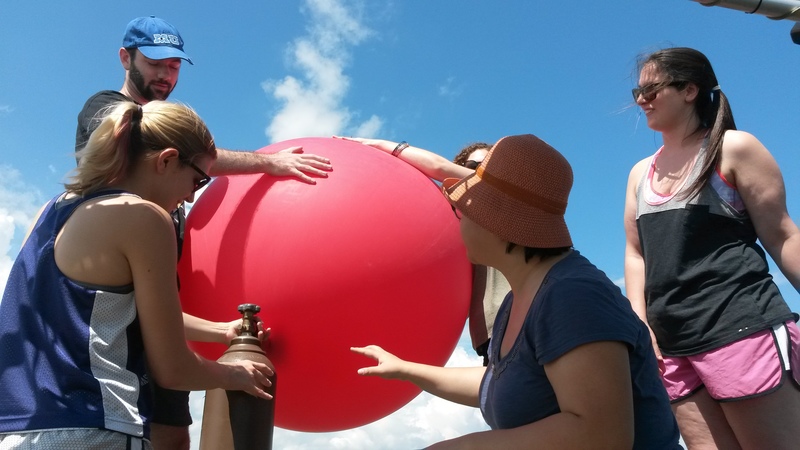
Events
All events are open to the public. The Public Lab Code of Conduct applies to all spaces managed by the Public Lab community and non-profit, both online and in person.
Add your event to the calendar!
Connect online or over the phone
Public Lab hosts weekly and monthly calls for people to connect, with online and phone call-in options. Pre-pandemic, local groups sometimes got together in person to join one of these events.
Open Calls Every Tuesday, Public Lab hosts a call for anyone to join. There are several topics that are covered in these calls. You can learn more about them below and look on the calendar for upcoming topics you might be interested in joining! The call is hosted at 3pm ET (7pm GMT during Daylight Saving Time, 8pm GMT during Standard Time).
Public Lab 101: this style of Open Call is aimed at welcoming newcomers to Public Lab, and helping people get acquainted with the community and resources available. This call might be for you if you're new to the website, are looking for an orientation, are looking for materials or information, or are generally interested in how people share and collaborate across Public Lab. Public Lab 101 calls are normally held the first Tuesday of every month, see the calendar below for details on the next 101 call.
Topic Based Calls: Land, Air, Water and Organizing are the major topic areas Public Lab covers in our regular Research Area Review cycle. This means, each topic gets a thorough review on a rotating schedule every year. But what about connecting with people on the topics that aren't currently being covered by the Research Area Review? Topic Based Calls are aimed at just that!
Topic based calls rotate monthly, so you're never more than a couple months out from connecting with someone on Air, Land, Water or Organizing issues. They're staffed by Public Lab staff and, when possible, Research Curation Fellows and joined by anyone interested in the topic being covered!
Open Space Calls This calls is for anyone interested in connecting with others at Public Lab. We use this time to workshop projects, connect on hot topics, help in the getting started moments, and otherwise chat! Drop in and say hello!
Live Builds and Guest Panels Occasionally we use the Open Call time slot to host Guest Panels on topics of interest and Live Build events with Public Lab tools and technology. Follow the calendar below to get updates on our upcoming events!
Research Area Reviews run year round on a quarterly cycle, reviewing topics one at a time. Each quarter, there is a kick-off call to introduce the review, surface initial questions on the topic, and talk about ways to get involved. At the end of the quarter, we have a wrap-up event to highlight new and updated community science resources on the review topic. To see what topic is currently being reviewed and past events, visit https://publiclab.org/reviews.
Connecting in person
The Barnraising An annual event, this is the closest thing we have to a Public Lab conference, but with an emphasis on "doing stuff together" rather than just presenting/talking. The Barnraising focuses on local research questions. In the spirit of bringing a community together to collectively raise a structure such as a barn, Public Lab comes together to develop tools, toolkits, supporting materials such as guides and tutorials, test the tools and develop new research directions and projects. Participants represent a wide range of interests from technologists and designers to social scientists and community organizers.
Information on the next Barnraising can be found here: http://publiclab.org/barnraising. Stay tuned! We are aiming to host a Barnraising before the end of 2022!
Calendar of events
Note: times below are shown in Eastern Standard Time (GMT-5 during Standard Time, GMT-4 during Daylight Saving Time). Click here to add this to your own Google Calendar.
Table of Contents
About Public Lab Events
There are several important traits that all Public Lab events have. If you’re coming to an event for the first time, they are things you can expect to happen, and what makes a Public Lab event unique. For event organizers, keeping them in mind can help you shape the activities of your events.
All Public Lab events:
- Follow the Public Lab Code of Conduct,
- Create learning moments,
- Level the playing field for people to participate,
- Increase collective understanding of environmental issues and community science,
- Allow space for people to think and act creatively, use available resources, and move towards action.
The Public Lab Code of Conduct
This code of conduct applies to all spaces managed by the Public Lab community and non-profit, both online and in person. It is both a resource for engagement, as well as a set of rules all Public Lab spaces must adhere to. More about how the Code of Conduct was created can be found on this page.
Creating learning moments
All Public Lab events create learning moments between people. The events value the knowledge and resources brought to the space, those that are built collaboratively when people share a space and the learning that happens outside a physical event space.
Sharing a Space:
Sharing a physical space is one of the best ways to build collective knowledge. One way in which Public Lab events work to create learning moments is by heavily favoring active participant engagement activities over passive activities.
Active participant engagement: Active participant engagement looks like “people doing stuff together.” This style of engagement favors group activities where each participant physically takes part. Active participant engagement examples include: breakout sessions, brainstorming, group discussions, and "hands on” activities.
Passive participant engagement: Passive participant engagement can often look like someone standing in front of the room facing a group of people. This looks like one person engaging and others listening. Examples of passive participant engagement activities include: presentations, lectures, and readings.
Sharing Out
While sharing a physical space can be a powerful thing, Public Lab also values the learning moments that happen outside of the physical event space. By capturing what is learned at an event, what questions came up, and what people are interested in exploring further, events can engage the broader Public Lab community. By doing so, both event participants and the broader Public Lab community builds collective knowledge and learning moments.
Some resource to engage in the broader Public Lab community during or after events include
Online Resources:
- Post a question can be used to capture questions (and answers) that come up.
- Post a research note can be used to share out about what was learned, or what people are interested in exploring further.
- Post an activity to share out about what was done so others can attempt to replicate or simply learn from your work. Write to a Public Lab list to reach out to a group of people with a particular interest or in a specific geography.
Over the phone:
- Call into an OpenCall to talk with others about some of your questions, ideas, next steps or take-aways.
Leveling the playing field for people to participate
While we recognize in the section above that everyone who participates in a Public Lab event has something to share and learn. Public Lab events also seek to actively “level the playing field” so that everyone has an opportunity to optimally engage.
To actively “level the playing field” participates should practice tactics such as:
- Developing plans together,
- Identifying and use a shared language (stay away from jargon or language that is not clear and understandable to participants),
- Recognizing and checking the privileges we come with,
- Aiming for equal speaking time,
- Favoring engagement of all participants over individual expertise on a subject matter, and
- Upholding the Public Lab Code of Conduct to ensure that all participants can safely and comfortably engage.
Facilitation resources can be helpful in creating an equitable space for people to engage.
“Leveling the playing field” also means working to make accessibility a priority. We do this by recognizing and mitigating the challenges to participants face to the best of our ability. Challenges in accessibility can include but are not limited to: travel or physical accessibility to an event, scheduling limitations, language, any associated event cost, parenting or child care needs.
Increasing collective understanding of environmental health issues
By increasing our collective understanding of environmental issues we’re better able to see pathways forward in our work, and create inroads for others to participate. Events can explore environmental topics, methods, geographic issues, and/or strategies towards advocacy and/or outreach outcomes. Events should explore existing information, resources and ideas, as well as create space for people to develop out those that are new.
Allowing space for people to think and act creatively, use available resources, and move towards action
Individual and collective creativity and ingenuity are the most highly valued resource at a Public Lab event and are at the forefront of each event activity. Public Lab events also use and exercise available physical resources. This means that the supplies, materials, and tools at hand, are resources for the event. These resources should be treated with care, and should be accessible for all participants. However, because creativity is most highly valued, some of the best events require the least materials.
Finally, Public Lab events value progress, and should include time for participants to identify pathways and next steps for moving forward, the opportunities to engage others in the work, and the plan for sharing out what was explored and learned.
Workshops Anyone can host a workshop! Post about your event on PublicLab.org so others can join. Learn more about hosting events here.
Recently posted events
Virtual Event: Environmental Storytelling - Stories from the Field
Post by @fongvania 9 | over 2 years ago
Event Mar. 31: Wrapping up a topic review on mine reclamation
Post by @bhamster 2 | over 2 years ago
EVENT Feb. 8: Kicking off a research area review on mine reclamation
Post by @bhamster 9 | over 2 years ago
Event Oct. 26: Kicking off a research area review on air quality data
Post by @bhamster 4 | almost 3 years ago
EVENT: Wondering about Wastewater? Join us for a series of events to wrap up Public Lab’s latest research area review!
Post by @bhamster 8 | almost 3 years ago
Event! Welcome to a public research area review on wastewater, July 27
Post by @bhamster 9 | 3 years ago
Live build event: Balloon mapping camera mount for aerial photography!
Post by @bhamster 3 | 3 years ago
Event: Welcome to a research area review on mapping for organizing & advocacy
Post by @bhamster 16 | over 3 years ago
Webinar: Community Science – Local Knowledge and Scientific Tools Joining Forces to Document Urban Health Hazards
Post by @mimiss 0 | over 3 years ago
Event hosting resources
Read more about event types and how to host your own event here and about posting your event to Public Lab here.
